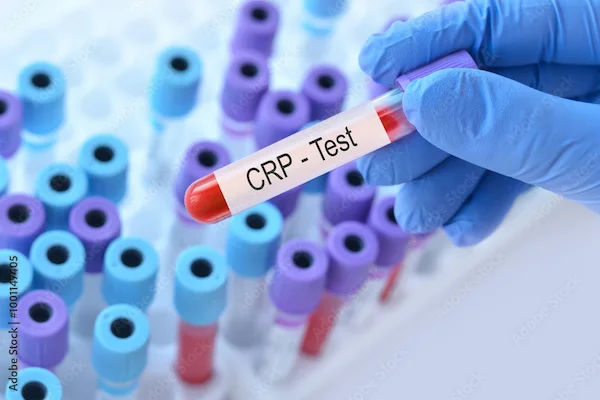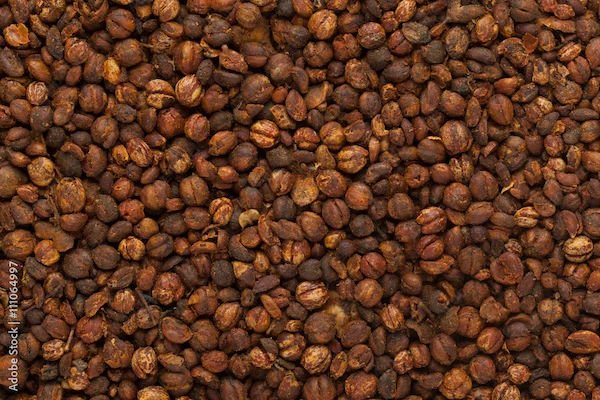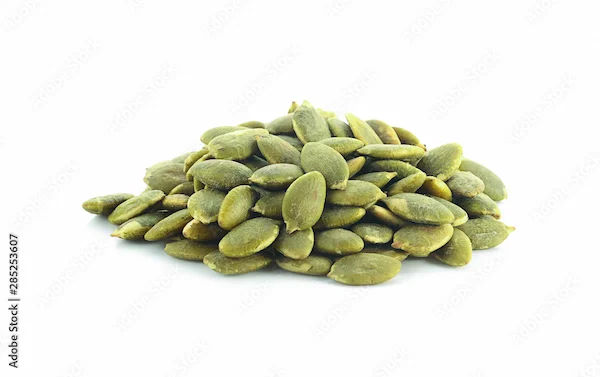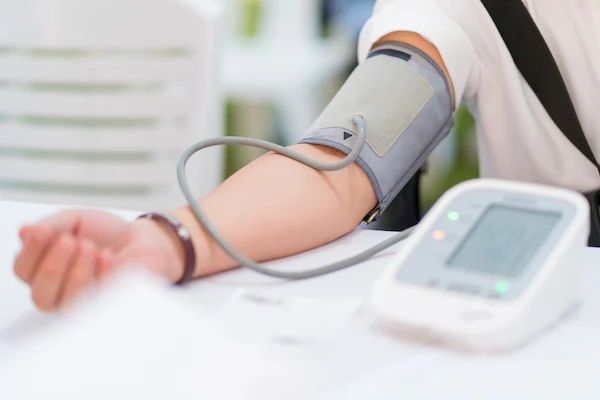How to Reduce CRP Levels By Food?
Lower CRP levels naturally with anti-inflammatory foods, a balanced diet, and lifestyle changes. Reduce inflammation and support overall health effectively.

Written by Dr.Sonia Bhatt
Last updated on 3rd Jul, 2025

C-reactive protein (CRP) is a key marker of inflammation in your body. Produced by the liver in response to inflammation, your CRP levels may fluctuate due to infections or injuries. However, persistently high levels may indicate a risk of chronic conditions such as heart disease, arthritis, and metabolic disorders.
Monitoring your CRP levels provides valuable insight into your body's immune response and overall health risks. A CRP test can help assess your inflammation levels and support timely interventions to reduce potential health complications.
One of the easiest and effective ways for you to control CRP levels is through dietary modifications. Certain foods can help you reduce inflammation while others can worsen it. An anti-inflammatory diet rich in whole foods, healthy fats, and antioxidants can naturally lower your CRP levels. By making informed food choices, you can actively manage inflammation and promote overall well-being.
Understanding CRP and Inflammation
C-reactive protein (CRP) is a key marker of inflammation in your body. If your CRP levels remain elevated for an extended period, it may indicate chronic inflammation, which can contribute to serious health conditions. Understanding what CRP is and why it rises can help you take the right steps to manage it effectively.
What is C-reactive Protein?
CRP is a protein produced by your liver in response to inflammation. It helps your immune system fight infections and heal injuries. However, if your CRP levels remain high without an obvious cause, it may signal an underlying health issue. A CRP blood test is commonly used to measure inflammation and assess the risk of chronic diseases.
Causes of Elevated CRP Levels
Several factors can contribute to an increase in your CRP levels. Some of those are:
Unhealthy diet: Processed foods, sugar, and trans fats increase inflammation.
Chronic stress: Long-term stress triggers inflammatory responses in the body.
Obesity: Excess body fat, especially around the abdomen, raises CRP levels.
Infections and injuries: Your body naturally produces more CRP when fighting infections.
Autoimmune diseases: Conditions such as rheumatoid arthritis and lupus cause persistent inflammation.
Health Implications of Chronic Inflammation
If CRP levels remain elevated, you may be at a higher risk of developing heart disease, diabetes, arthritis, and certain cancers. Chronic inflammation also weakens your immune system, making you more susceptible to illness. By adopting a healthier diet and lifestyle, you can naturally lower CRP levels and reduce the risk of inflammation-related diseases.
Anti-Inflammatory Foods
What you eat plays a major role in controlling inflammation and reducing CRP levels. Including anti-inflammatory foods in your diet can help regulate immune responses, lower oxidative stress, and promote overall well-being.
Role of Omega-3 Fatty Acids
Omega-3 fatty acids have powerful anti-inflammatory properties that help lower CRP levels. If you include fatty fish such as salmon, mackerel, and sardines in your diet, you can reduce inflammation and improve heart health. Plant-based sources like chia seeds, flaxseeds, and walnuts also provide omega-3s that help combat inflammation.
Importance of Antioxidants
Antioxidants help neutralise free radicals, which can trigger inflammation in your body. Berries, green tea, turmeric, and dark leafy greens are rich in antioxidants that support immune function and lower CRP levels. Including a variety of colourful fruits and vegetables ensures a steady intake of these inflammation-fighting compounds.
Benefits of Fibre-Rich Foods
Fibre helps regulate digestion, promotes gut health, and reduces inflammation. Whole grains, legumes, and vegetables such as broccoli, lentils, and oats are excellent sources of fibre that support a healthy immune system. If you eat a high-fibre diet, your body can eliminate toxins more efficiently, leading to lower CRP levels and improved overall health.
Consult Top Cardiologist
Foods That Help Lower CRP Levels
Including the right foods in your diet can naturally reduce CRP levels and combat inflammation. A nutrient-rich diet filled with antioxidants, fibre, and healthy fats supports overall health while lowering inflammation in your body.
Fruits and Vegetables
If you consume a variety of colourful fruits and vegetables, you can benefit from antioxidants that fight inflammation. Berries, oranges, spinach, kale, and bell peppers contain vitamins and polyphenols that help lower CRP levels and protect against chronic diseases.
Whole Grains
Whole grains provide fibre and essential nutrients that reduce inflammation. You can swap refined grains for brown rice, quinoa, whole wheat, and oats to improve your digestion, regulate blood sugar, and lower CRP levels.
Nuts and Seeds
Nuts and seeds are rich in healthy fats, fibre, and antioxidants. If you include almonds, walnuts, flaxseeds, and chia seeds in your diet, you can reduce inflammation while supporting heart health and overall wellness.
Healthy Fats
Consuming healthy fats can help you control inflammation and balance cholesterol levels. Sources such as avocados, olive oil, and coconut oil provide essential fatty acids that naturally lower CRP levels and promote cardiovascular health.
Foods to Avoid
If you want to lower CRP levels and reduce inflammation, eliminating certain foods from your diet is just as important as adding anti-inflammatory ones. Processed, sugary, and unhealthy fat-laden foods contribute to chronic inflammation and can keep CRP levels elevated.
Processed and Refined Foods
Highly processed foods contain preservatives, artificial additives, and refined carbohydrates that trigger inflammation. If you regularly consume white bread, packaged snacks, instant noodles, and fast food, your CRP levels may remain high. Opting for whole, natural foods instead can help reduce inflammation.
Sugary Drinks and Snacks
Excess sugar increases insulin resistance and promotes inflammation. If you consume soft drinks, packaged fruit juices, candies, and pastries, your body may experience oxidative stress, which can raise CRP levels. Replacing sugary treats with natural sweeteners like honey or fruits can help.
Saturated and Trans Fats
Unhealthy fats contribute to inflammation, heart disease, and weight gain. If you eat fried foods, margarine, processed meats, and hydrogenated oils, you expose your body to trans fats that raise CRP levels. Instead, you should switch to healthy fat sources like olive oil, nuts, and avocados.
Meal Planning for Reducing CRP
Planning your meals with anti-inflammatory ingredients can help naturally lower your CRP levels. A well-balanced diet rich in whole foods, healthy fats, and fibre can support your overall health and reduce inflammation.
Sample Anti-Inflammatory Breakfast Ideas
Starting your day with a nutrient-dense breakfast can stabilise blood sugar levels and prevent inflammation. You should try:
Oatmeal with flaxseeds, walnuts, and berries
Avocado toast on whole grain bread with olive oil and pumpkin seeds
Smoothie with spinach, banana, chia seeds, and almond milk
Lunch and Dinner Suggestions
For main meals, you should focus on lean proteins, whole grains, and vegetables:
Grilled salmon with quinoa and roasted vegetables
Lentil soup with whole wheat bread
Stir-fried tofu with brown rice and leafy greens
Snack and Dessert Options
Healthy snacks and desserts help curb your cravings while lowering inflammation in your body:
Almonds and walnuts with dark chocolate
Greek yogurt with turmeric and honey
Hummus with raw vegetables
Lifestyle Tips to Complement Diet
Lowering CRP levels is not just about eating the right foods; your lifestyle choices also play a key role in reducing inflammation. Regular exercise, stress management, and quality sleep help support overall health and maintain lower CRP levels.
Regular Exercise
Engaging in moderate physical activity improves circulation, supports weight management, and reduces inflammation. Activities like walking, swimming, cycling, and yoga help lower CRP levels by enhancing heart health and reducing excess body fat. Aim for at least 30 minutes of exercise five days a week.
Stress Management
Chronic stress triggers inflammation and increases CRP levels. Practising meditation, deep breathing, or mindfulness techniques can help manage stress effectively. Spending time in nature, engaging in hobbies, or practising gratitude can also improve mental well-being and reduce inflammation.
Adequate Sleep
If you do not get 7–9 hours of quality sleep each night, your body may produce more inflammatory markers, including CRP. Maintaining a consistent sleep schedule, avoiding screen time before bed, and creating a relaxing bedtime routine can enhance sleep quality and support overall health.
Monitoring CRP Levels
Regularly checking your CRP levels can help you track inflammation and assess your overall health. If you are making dietary and lifestyle changes to lower CRP, monitoring your progress through blood tests can provide valuable insights.
When to Check CRP Levels
If you have chronic conditions such as heart disease, arthritis, or autoimmune disorders, your doctor may recommend periodic CRP tests. You should also check CRP levels if you experience persistent fatigue, joint pain, or unexplained inflammation. Regular testing helps detect early signs of health issues and measure the effectiveness of dietary and lifestyle changes.
Interpreting CRP Test Results
CRP levels are measured in milligrams per litre (mg/L) of blood:
Below 1 mg/L – Low inflammation, indicating good health.
1–3 mg/L – Moderate inflammation, suggesting potential health risks.
Above 3 mg/L – High inflammation, which may indicate an infection or chronic disease.
If your CRP levels remain high, consulting a doctor can help you determine the underlying cause and further treatment.
Conclusion
You can try to lower your CRP levels naturally through a combination of the right dietary choices and lifestyle modifications. If you focus on reducing inflammation through nutrition, regular exercise, and stress management, you can improve your overall health and lower the risk of chronic diseases.
A diet rich in omega-3 fatty acids, fibre, antioxidants, and whole foods helps combat inflammation. You should consume berries, leafy greens, whole grains, and nuts while avoiding processed foods, sugary drinks, and unhealthy fats can significantly lower CRP levels.
Along with diet, you should also maintain an active lifestyle, manage stress, and get quality sleep to lower inflammation. If your CRP levels remain high despite making dietary and lifestyle changes, you should seek medical advice. A doctor can help identify underlying causes and recommend treatments to you.
Consult Top Cardiologist
Consult Top Cardiologist

Dr. Amit. A. Bharadiya
Cardiologist
12 Years • MBBS, MD General Medicine, DNB Cardiology
Maharashtra
Surabhi Hospital, Maharashtra, Maharashtra

Dr. Sumanta Chatterjee
Cardiologist
12 Years • MBBS,MD General Medicine,DM Cardiology
Kolkata
HealthYou Speciality Clinic & Diagnostics., Kolkata
(25+ Patients)

Dr. Nataraja Setty
Cardiologist
21 Years • MBBS, MD (General Medicine), DM (Cardiology)
Bengaluru
Sapphire heart care clinic, Bengaluru
Dr. Dixit Garg
Cardiologist
10 Years • MBBS , DNB (General medicine) , DNB (cardiology)
Gurugram
Smiles & Hearts, Gurugram

Dr. Pinaki Nath
Cardiologist
8 Years • MBBS, MD General Medicine, DM Cardiology
Barasat
Diab-Eat-Ease, Barasat
Consult Top Cardiologist

Dr. Amit. A. Bharadiya
Cardiologist
12 Years • MBBS, MD General Medicine, DNB Cardiology
Maharashtra
Surabhi Hospital, Maharashtra, Maharashtra

Dr. Sumanta Chatterjee
Cardiologist
12 Years • MBBS,MD General Medicine,DM Cardiology
Kolkata
HealthYou Speciality Clinic & Diagnostics., Kolkata
(25+ Patients)

Dr. Nataraja Setty
Cardiologist
21 Years • MBBS, MD (General Medicine), DM (Cardiology)
Bengaluru
Sapphire heart care clinic, Bengaluru
Dr. Dixit Garg
Cardiologist
10 Years • MBBS , DNB (General medicine) , DNB (cardiology)
Gurugram
Smiles & Hearts, Gurugram

Dr. Pinaki Nath
Cardiologist
8 Years • MBBS, MD General Medicine, DM Cardiology
Barasat
Diab-Eat-Ease, Barasat




